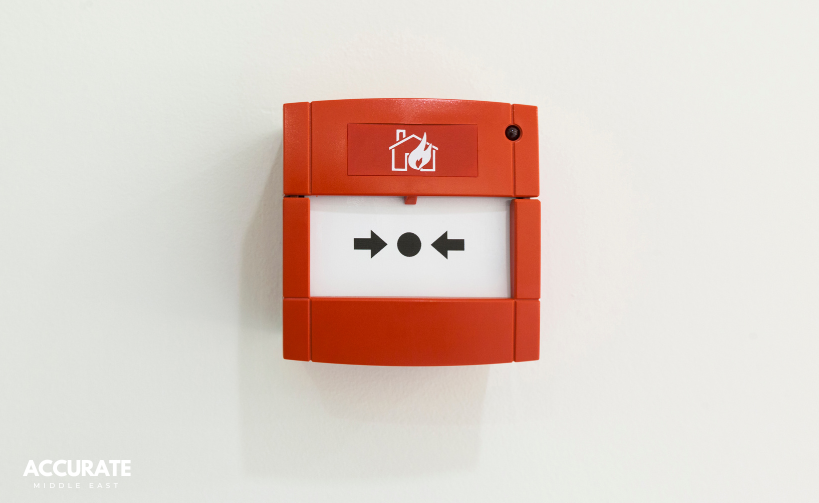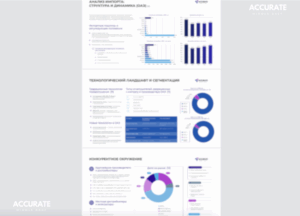Fire safety in the UAE and throughout the GCC has entered a new phase. It’s no longer viewed as a regulatory hurdle that developers or operators check off reluctantly. Today, safety is an important part of planning for real estate projects, industrial facilities, and even consumer products. Rapid urbanization, mega-projects under Saudi Arabia’s Vision 2030, and the shift toward smart cities are reshaping the way people think about fire prevention and suppression.
For businesses, this shift presents both opportunity and complexity. Regulations are strict, competition is global, and customers expect solutions that are not only reliable but also integrated with modern smart infrastructure.
This case highlights how Accurate Middle East helped a client — an innovator developing a compact aerosol-based extinguishing device — to understand the UAE market, evaluate its potential, and build a realistic entry roadmap. It’s a story of transforming a bold idea into a clear plan. This plan is supported by research and based on the laws of the region.

Fire Alarm and Extiguishers Smart IoT UAE Saudi Arabia GCC market 2025
The Client’s Challenge
When the client approached us, their vision was clear: bring a new fire extinguishing technology — compact, automated, and aerosol-based — into the UAE market. But clarity on the product didn’t equal clarity on the path forward.
They wanted to know:
- How big is the opportunity for smart fire detection and suppression in the UAE?
- What do customers — from developers to facility managers to homeowners — actually want?
- What approvals are required, how long do they take, and what do they cost?
- Which competitors are active, how are they priced, and where are the gaps?
- And most importantly, what is the most effective way to enter and scale across the GCC?
This wasn’t a simple desk research task. Fire safety is one of the most tightly regulated industries in the region, and product approval involves navigating multiple agencies and technical requirements. The client needed more than numbers — they needed a clear, step-by-step market entry roadmap.
Scope of Work: How Accurate Middle East Structured the Project
We designed a framework around four pillars, ensuring every critical question was addressed.
- Market Research & Segmentation
We examined:
- The overall size and growth of the UAE fire detection and suppression industry.
- Segmentation by product type: smart detection, compact suppression, IoT-enabled alarms.
- Demand drivers in construction, industrial, and residential markets.
- The influence of mega-projects (Expo legacy projects, Vision 2030, and new urban developments) on fire safety demand.
- Regulatory Mapping
Navigating approvals was one of the most pressing challenges for the client. We broke down:
- UAE Civil Defence and Abu Dhabi Civil Defence (ADCD) certification processes.
- Certification requirements.
- Mandatory integration with the Hassantuk centralized smart monitoring system.
- Cost structures, timelines, and compliance risks.
- Competitor Benchmarking
The market is crowded with established players, but also full of gaps. We compared:
- 12 product types, including FM200, CO₂, water-based suppression systems, aerosol devices, and IoT-enabled solutions.
- Price points and distribution models of global, regional, and local players.
- After-sales and maintenance practices — a critical factor in B2B purchasing.
- Where compact, automated systems remain underserved.
- Go-To-Market Strategy (GTM)
Based on research, we developed a practical GTM strategy:
- Entry models: licensing, distributor partnerships, pilot installations.
- Sales channels: Consultants, facility managers, real estate developers, and ecommerce platforms for B2C.
- Marketing positioning: safety + innovation + cost-effectiveness.
- Roadmap for pilot projects with government and commercial stakeholders to build credibility.

Smart Fire Detection & Extinguishing Market Study in the UAE Accurate ME
Methodology: Our Consulting Process
To ensure accuracy and local relevance, we combined structured analysis with direct industry insights.
- 5 expert interviews with fire safety engineers, facility managers, and contractors in the UAE.
- Review of 10+ regulatory and technical documents, including standards from Civil Defence.
- Competitive benchmarking across detection and suppression categories, with price and positioning analysis.
- Mapping certification requirements, including testing procedures, documentation, and expected approval timelines.
- Development of a 12-month market entry plan aligned with the client’s product specifications and target launch window.
This methodology helped to make sure the client didn’t just receive raw data, but a full understanding of how the market works in practice.
Key Insights from the Study
Market Trends in UAE & GCC
- The UAE fire safety market is projected to continue steady growth, driven by construction, regulatory enforcement, and smart city projects.
- IoT and smart building integration have become baseline requirements — any product not offering this integration risks losing relevance.
- Compact aerosol-based extinguishers remain underexplored compared to established FM200 and CO₂ systems, creating an opening for innovators.
- Saudi Arabia’s Vision 2030 is fueling long-term demand, particularly for large-scale infrastructure and industrial projects.
Regulatory & Certification Challenges
- Civil Defence approval is non-negotiable — it covers testing, documentation, and often pilot installations.
- Products must comply with XX integration standards for centralized monitoring.
- XX certification is essential for expansion.
- Certification timelines can range from 6 to 12 months, depending on product type and country of origin.
Competitive Landscape
- Established global brands dominate high-capacity suppression systems.
- Mid-market compact solutions remain underserved, leaving space for differentiated products.
- Many distributors are locked into long-term agreements, which makes new partnerships harder — but not impossible.
- Facility managers and contractors play a crucial role in product adoption, highlighting the importance of building local trust.
Go-To-Market Opportunities
- B2B entry though XX is the fastest path to traction.
- B2C opportunities exist in villa and residential markets, particularly via ecommerce.
- A positioning strategy built around “smart, compact, and cost-efficient” is both realistic and attractive.
- Pilot projects in industrial warehouses and government facilities are critical to gaining credibility and securing long-term contracts.
Deliverables & Outcome
By the end of the project, the client received a detailed market entry package that included:
- Market data visualizations and infographics (market size, pricing, competitor positioning).
- A 12-month GTM roadmap with clear milestones.
- A full certification pathway summary with timelines, costs, and risk points.
- A shortlist of potential partners: distributors, installers, and consultants.
- Strategic recommendations for pilot projects and marketing positioning.
The value delivered:
The client left with more than a report. They had a validated roadmap — knowing which certifications to pursue, which partners to approach, how to price, and how to position their product in a competitive but opportunity-rich market.
Why This Case Matters
This case is a reminder of why entering highly regulated industries requires more than a good product. Success comes from:
- Understanding the local approval process before investing heavily.
- Building credibility through pilots and partnerships.
- Benchmarking against competitors to identify underserved gaps.
- Adapting go-to-market strategies for both B2B and B2C audiences.
For innovators and investors, the UAE and GCC fire safety sector offers tremendous opportunities — but only for those who take a research-driven approach.
Where to start?
At Accurate Middle East, we specialize in helping companies navigate complex, regulated markets. Whether it’s fire safety, industrial systems, or advanced technologies, our role is to provide clarity, reduce risk, and turn ambition into action.
If you’re considering bringing an innovative product to the UAE or GCC:
- Contact us though WhatsApp
- Call us in the UAE: +971 50 599 5603
- Or fill in the brief and request a free consultation form link
With more than 15+ years of experience across the region, we know how to transform complexity into opportunity.



